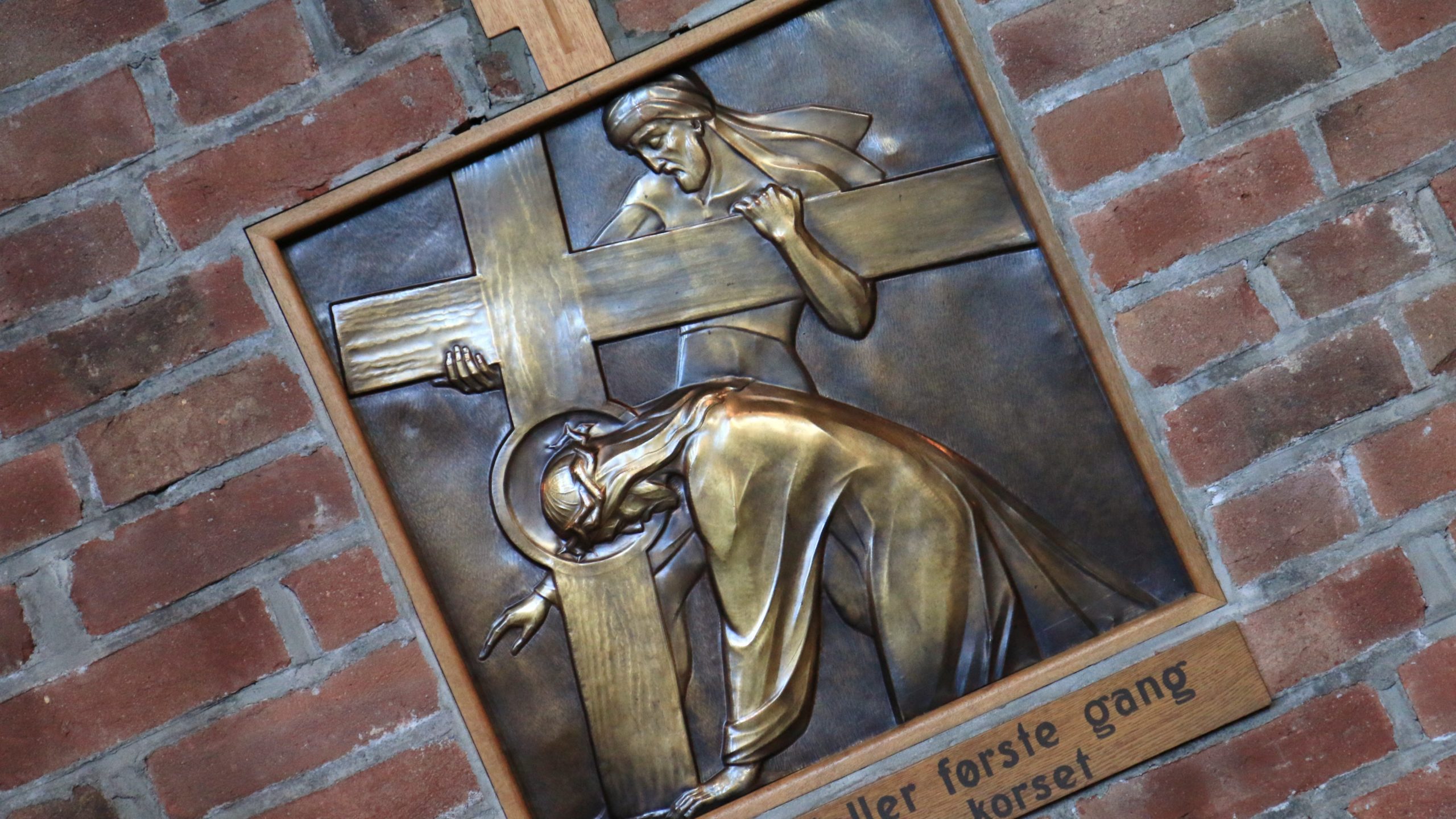
Mark 8:27-29
NL 213
27 JesusA went on with his disciplesB to the villagesC of CaesareaD Philippi;E
A “Jesus” = Iesous. From Hebrew Yehoshua (Joshua, the Lord is salvation); {from YHVH (proper name of the God of Israel; the self-existent and eternal one); {from havah (to become) or from hayah (to come to pass, become, be)} + yasha (to deliver, defend, help, preserve, rescue; properly, to be open, wide or free, which implies being safe. So, in a causative sense, this is to free someone)}. This is Jesus or Joshua in Greek – the Lord saves or the Lord is salvation.
B “disciples” = mathetes. From matheteuo (to make a disciple of); from manthano (to learn key facts, gain knowledge from experience; generally implies reflection as part of the learning process); from math– (thinking things through). This is a disciple, learner, or student. It is where we get “mathematics” from.
C “villages” = kome. This is a village as contrasted with a city that has a wall.
D “Caesarea” = Kaisareia. 17x in NT. From kaisar (Caesar, at first a last name, then taken as a title by Roman emperors); from Latin (Caesar); perhaps from Punic caesai (elephant) OR from Latin a cesiis oculis (because of the blue eyes) OR from Latin a caesarie (because of the hair) OR from Latin a caeso matris utero (born by Caesarean section) OR from Latin caedo (to cut). This is Caesarea – part of the name of two cities in Palestine. See https://en.wiktionary.org/wiki/Caesar#Latin.
E “Philippi” = Philippos. From philos (dear, beloved, a friend, an associate; friendship with personal affection, a trusted confidante; love from personal experience with another person) + hippos (horse). This is Philip, meaning one who loves horses or is fond of horses.
and on the wayF he askedG his disciples, “Who do peopleH say that I am?”
F “way” = hodos. This is way, road, path, or journey. It can imply progress along a route.
G “asked” = eperotao. From epi (on, upon, against, what is fitting) + erotao (asking a question or making an earnest request; used when one anticipates special consideration for their request); {from eromai (to ask) OR from ereo (to say, tell, call, speak of)}. This is to question, interrogate, seek, or demand. The questioner is at an advantage – in a preferred position when they make their question.
H “people” = anthropos. Probably from aner (man, male, husband) + ops (eye, face); {from optanomai (to appear, be seen); perhaps from horao (become, seem, appear)}. This is human, humankind. Used for all genders.
28 And they answered him, “JohnI the Baptist;J and others,K Elijah;L and still others, oneM of the prophets.”N
I “John” = Ioannes. Related to “Jesus” in v27. From Hebrew yochanan (Johanan); from Yehochanan (“the Lord has been gracious”); {from YHVH (see note A above)} + chanan (beseech, show favor, be gracious; properly, to bend in kindness to someone with less status). This is John, meaning “the Lord has been gracious.”
J “Baptist” = Baptistes. 12x in NT. From baptizo (to submerge, wash, or immerse; used specially for baptism); from bapto (to dip or dye; to entirely cover with liquid, to stain). This is baptizer or Baptist. The term is only used for John the Baptist.
K “others” = allos. This is other, another. Specifically, it is another of a similar kind or type. There is a different word in Greek that speaks of another as a different kind (heteros).
L “Elijah” = Elias. Related to “Jesus” in v27 & “John” in v28. From Hebrew Eliyyah (Elijah) {from el (God, god) + Yah (the shortened form of the name of the God of Israel; God, Lord); {from YHVH (see note A above}}. This is Elijah, “The Lord is God.”
M “one” = heis. This is one, a person, only, some.
N “prophets” = prophetes. From pro (before, in front of, earlier than) + phemi (to declare, say, use contrasts in speaking to shed light on one point of view); {from phao (to shine) or phaino (to bring light, cause to appear, shine, become visible or clear)}. This is a prophet or poet – one who speaks with inspiration from God.
29 He asked them, “But who do you say that I am?”
PeterO answered him, “You are the Messiah.”P
O “Peter” = Petros. Related to petra (large rock that is connected and or projecting like a rock, ledge, or cliff; can also be cave or stony ground). This is Peter, a stone, pebble, or boulder.
P “Messiah” = Christos. From chrio (consecrate by anointing with oil; often done for prophets, priests, or kings). Literally, the anointed one, Christ. The Greek word for Messiah.
Image credit: “Jesus Falls under the Cross for the First Time” from St. Thorfinn’s Church in Hamar, Norway. Photo by Øyvind Holmstad, 2015.
